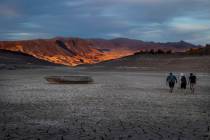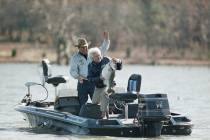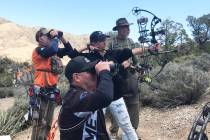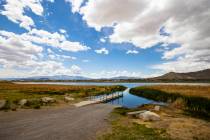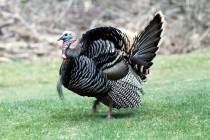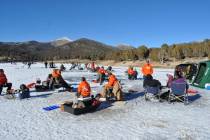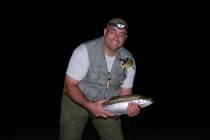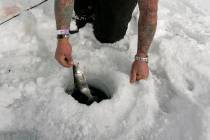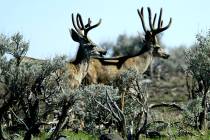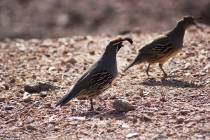Out for dove season with a clipped wing
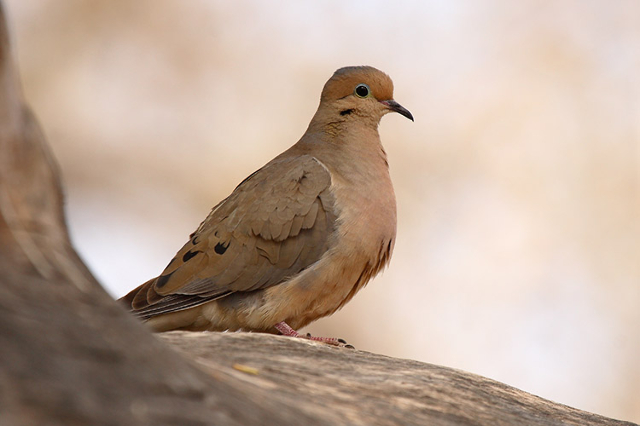
Sidelined. Benched for much of the season. Those weren’t the orthopedic surgeon’s exact words, but that’s what he was saying.
“But Doc, you don’t understand, I have a cow elk tag.”
I was pleading for understanding, but finding none.
“You had an elk tag,” he countered. “No shooting for six months.”
“July, August, September … That means I can’t shoot until January. I’ll miss most of the hunting season!” I exclaimed while looking to my wife for sympathy.
She just pointed to the sling and pillow contraption that held my shooting arm tight to my side while protecting the doctor’s handy work and asked, “How does that shoulder feel today? Want to start the whole thing over again?”
Women have such a way of cutting right to the chase. That thought and the pain that surged through my shoulder every time the truck hit a bump in the road put everything into perspective.
But today, with just 11 days left before the season opener for mourning doves, the reality of my relegation to the bench has really hit home.
Dove season begins Sept. 1, and for the second year runs through Oct. 30. The daily bag limit during this extended season is 15 birds, and the possession limit is 45. Both are generous. Between now and then, you can save yourself some legal paperwork by looking through the regulations before you go afield. If you are an experienced dove hunter, it never hurts to refresh your knowledge. If you are new, it is a must.
For those who are new to dove hunting, two of the things game wardens will be looking for is a HIP (Harvest Information Program) number on your hunting license and a plug in your shotgun. Naturally, if they are looking for the HIP number, they are also looking for your license. Be sure to have it with you. You can get your HIP number by calling 866-703-4605 or at ndowlicensing.com.
Semi-automatic and pump action shotguns come from the factory with a plug that inserts into the magazine and limits the firearm’s shell capacity to three. That includes the shell in the chamber.
In my game warden days, this was a common violation. While in some cases it was intentional, in others it was simply an oversight by a hunter who had removed his plug to hunt quail the year before and forgot to replace it. To prevent such a mistake, I just leave the plug in my shotgun all the time. It is just easier that way.
If you have never hunted doves, you are in for a real challenge. Doves are relatively small game birds that have been blessed with unmatched speed and maneuverability that will test the shooting ability of even experienced wing shooters. Their top speed is 55 mph, and they can turn without slowing down. Missed shots are the norm rather than the exception, but they can be reduced by simply being patient and letting the bird come into range.
Doves have tremendous eyesight and will easily catch movement from a long distance and adjust their flight path to avoid you. Some hunters choose to wear camouflage, others simply use drab clothing, but the key is finding some cover to hide behind and moving only when necessary. Since hunters are generally hiding in available cover, be sure to look for sky behind the bird before you shoot. Doing so will prevent you from covering another hunter with your muzzle.
Naturally, you can’t shoot what you can’t find. So take some time to get out and do some scouting.
Last season, I had a rude awakening when the sun came up on my go-to dove spot and the water that had traditionally drawn in doves was no longer there. I later learned it had been diverted for other uses. Doves need three things — a roost, a food source and water. Without all three, you won’t find many birds. Obviously, I should have been hunting elsewhere.
Keep in mind that rattlesnakes are still out and about. They will be using cover to get out of the sun. Look before you slip into the cover or reach into a bush for a downed bird. If you have a dog, keep an eye out for his safety as well.
In the meantime, I guess I’ll go fishing. If the doc and my wife say it’s OK.
Freelance writer Doug Nielsen is a conservation educator for the Nevada Department of Wildlife. His “In the Outdoors” column, published Thursday in the Las Vegas Review-Journal, is not affiliated with or endorsed by the NDOW. Any opinions he states in his column are his own. He can be reached at intheoutdoorslv@gmail.com.



